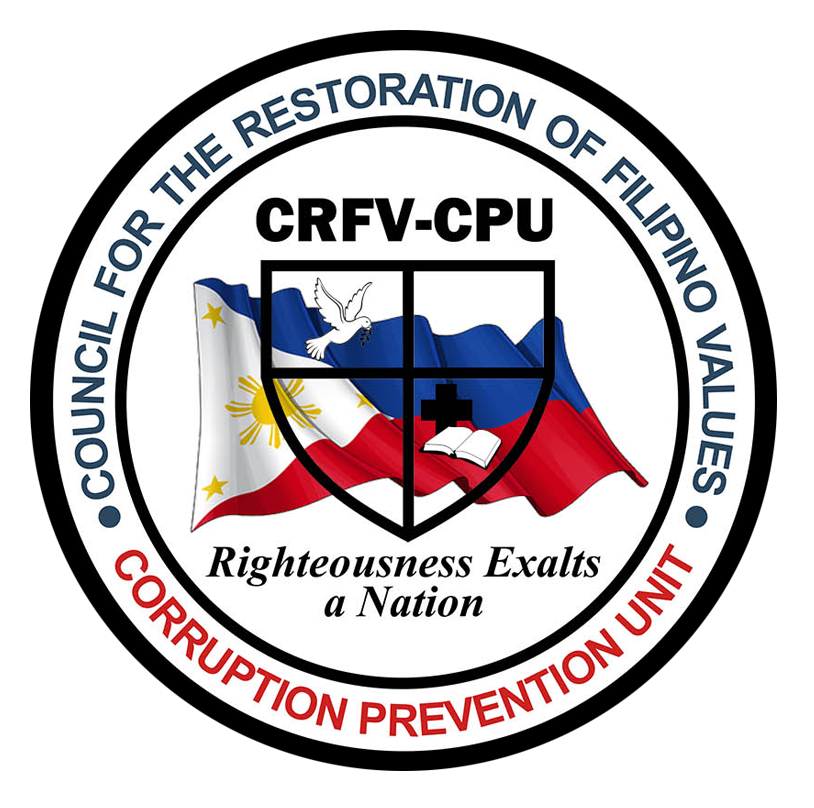|
by: Nathaniel A. Saquiban Sense of responsibility, by the term itself, is being sensitive to responsibility. It is simply doing our best to perform our work completely and excellently. It is staying focus of what needs to be done rather than being lax, procrastinate, and in a lackadaisical attitude. It is like being haunted by the task and cannot rest until the work is finished. A person who has sense of responsibility is uncomfortable or uneasy seeing an unfinished business. Normally, that person is not living in a comfort zone and always on the go or up to the task. He or she need not be reminded or motivated to do the work as he or she is on top of every situation.
In part, sense of responsibility is not only in terms of work performance but also in the area of accountability. It is assuming responsibility or accountability when something went wrong under a person’s watch or supervision. Naturally, a person passes the blame to others and run away from responsibility when setbacks occur. Not so for a person with sense of responsibility because he or she even answers for the mistakes committed by others or his or her subordinates. As John Maxwell said, “A sense of responsibility is the clearest indication of mature leadership”. How many leaders today have this kind of character? Sometimes, it is disheartening to watch and listen to the responses of leaders under panel of investigators who put their subordinates to peril and in a precarious situation even if the matter is under their command and authority. They hastily, negligently, and selfishly make wrong decisions for their personal advantage but when problems arise, they deny involvement to such thing or to such subject of investigation. Never did they know that they will be all the more esteemed when they take responsibility of the consequences of their actions or decisions. Leaders with sense of responsibility, thus, is not after position or fame but rather service. They are always mindful of what they can accomplish rather than what they can gain. They know that every function they take is not for personal glory but an additional responsibility. The more they accept responsibility, the more they get promoted to higher office and become great. Winston Churchill said in this wise, “The price of greatness is responsibility”. Nonetheless, in some parts of the world, only few are willing to pay the price yet they want the benefits. Thus, they resort to swift yet illegal means to get what they wanted. Our country is in need of leaders with sense of responsibility. People who feel responsible for the ongoing poverty among large number of the populace and whenever there is economic challenges. They are prompted or alerted by the negative circumstances and forced to arise in order to find solution. They cannot afford to sit back and relax knowing that their constituents or fellow citizens are in the midst of trouble. These are the type of leaders who do not only give the answer but they become the answer themselves because their existence brings confidence and assurance to many that Philippines has a better future. May their tribe multiply and be countless.
0 Comments
by: Keren May B. Busaing 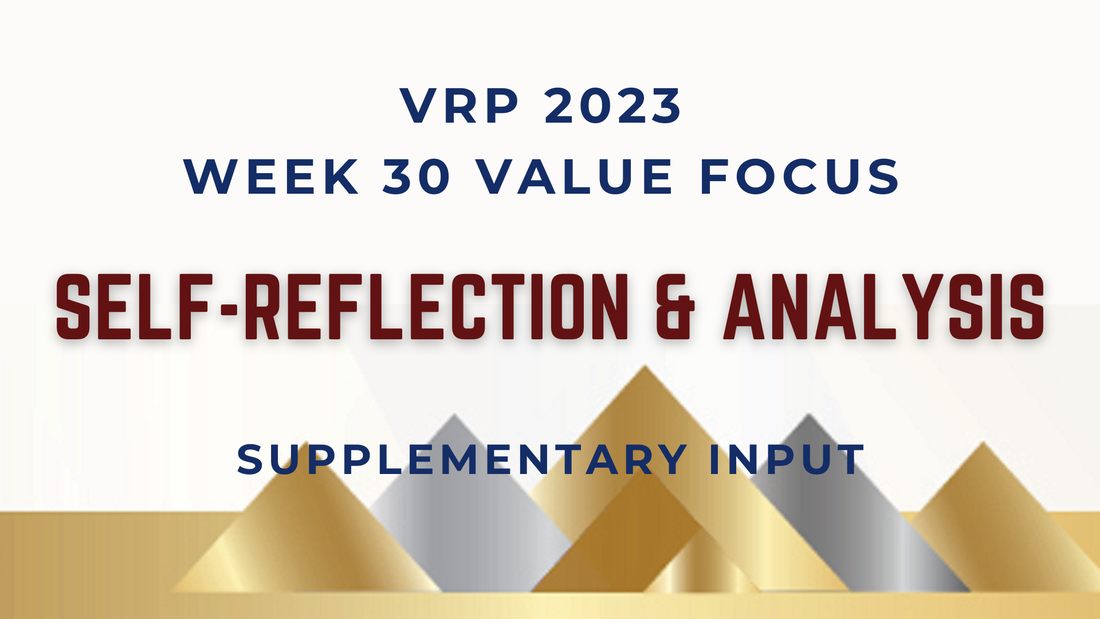 Our lives are a tapestry of diverse circumstances, each person having their unique story to tell—filled with joy or sorrow, encouragement or despair, triumph or defeat, and countless other experiences. While we may share common goals and visions with others, the complexity of individuality demands a varied approach to navigating life's challenges. Amidst this intricacy, the value of self-reflection and analysis emerges as a powerful tool applicable across our differences.
Often, our struggles and difficulties can be traced back to a lack of self-reflection. Reacting instinctively to situations may lead to irreversible negative consequences, making self-analysis crucial for personal development. Self-reflection and analysis involve diving deep within ourselves, setting aside external influences, and opening ourselves to personal moments of introspection — an intimate connection with our own thoughts and most especially, with God. In this process, we lay our hearts bare, acknowledging the true condition of our being—the good, the bad, and the ugly. We assess our intentions and motivations, seeking to abandon the negative and align ourselves with higher purposes. This act prevents us from falling into the trap of self-justification, ensuring that our responses are rooted in pure intentions rather than ego-driven reactions. Recognizing that self-reflection isn't an innate trait, we must consciously choose to cultivate it. This begins by confronting the worst version of ourselves and deciding that it is not the path we wish to follow. By developing an attitude of self-reflection, we create a foundation for instinctively responding to life's challenges in a constructive and growth-oriented manner. As men and women called to serve and inspire others, let us sow the seed of self-reflection and analysis deep within our hearts. Often overlooked, this essential element can be the missing ingredient in great causes and advocacies. When those involved are consistently guided by self-reflection, clarity of purpose, pure intent, and humility emerge as defining traits. By staying in touch with our hearts and remaining aligned with the Almighty God, we avoid being deceived by external influences. Today, let us take a look within ourselves, examining our actions and intentions. Tomorrow, let us continue this practice, ensuring that self-reflection becomes an integral part of our lives. As we grow and learn, our ability to inspire and positively impact others will be enriched, creating a ripple effect of transformation in the world around us. Jesus V. Sison, CRFV Deputy National Director “You have shown great mercy to your servant David my father, because he walked before You in truth, in righteousness and in uprightness of heart with you; You have continued this great kindness for him, and You have given him a son to sit on his throne, as it is this day.”- King Solomon
Righteousness unlocks a legacy that is approved, established and made to last. As we walk in truth and righteousness, the Almighty God will cause His great kindness and faithfulness to endure from one generation to the next. A lasting legacy of spirituality, values, actions, work and of people are recognized. It is heartwarming to know of God’s assurance to His people that righteousness exalts a nation, a family and an institution. It also sets up and solidifies our position of authority just like the wisest king who ever reigned declared, that righteousness establishes the throne. Indeed, our credentials can take us up in the echelon while character can sustain us but only righteousness could establish us where God planted and strategically positioned a person. As was a declaration of what a king in the ancient times was expected to do, so is in our present time, to properly conduct ourselves before the Almighty God and before the people. Righteousness refers to morally upright stature of a person. It is the quality of being just and right. And this value is an indispensable attribute of our Almighty God. For this reason, He loves righteousness and is attracted to it that His approval and favor is on the upright. It is of “being” and not just defining that is quite literally means “One who is right. Possessing righteousness consequently is “right standing before God.” It is the only living standard that is suitable for us to stand before the Father and before His people. It is believing and living according to God’s design for our lives, thus doing away with sin. In doing so, we live and lead our family, agency and the nation accurately that “in the way of righteousness is life, and in its pathway, there is no death”2 Thus, the things we do produce life that is peaceable, joyful and truthful making all those who are around us contented and satisfied. This will continue to live on in a cycle creating life after life that we can simply identify it as legacy. So, when we talk about living in righteousness, some people thought that it had more to do with behavioral modification than heart transformation. In the context of the Public Service Values on Spirituality, to yield righteousness, a person must be Spirit-filled to be changed from the inside that would in turn result to a consistent practice of acts of goodness, kindness and holiness. Righteousness produces those works, not the other way around. The prophet Isaiah says that “we are all infected and impure with sin. When we display our righteous deeds, they are nothing but filthy rags. Like autumn leaves, we wither and fall, and our sins sweep us away like the wind.”3 Our attempts to produce righteousness on our own are repulsive in the eyes of God. We have all become like one who is unclean, and all our righteous deeds are like a polluted garment. While those good works are commendable, rediscovering how God views and what He says about righteousness will lead us to full understanding of what He really requires. Even when our good deeds seem to be performed from the purest of motives, unless that motivation is to glorify the name of Jesus and the centrality of what we are doing is He, those deeds are completely self-righteous and sinful. As Saint Paul expressed that “the righteousness of God has been clearly and completely revealed apart from the Law and traditions, though it is actually confirmed by the Law and the writings of the Prophets; this righteousness of God comes through faith in Jesus Christ for all those who believe, trust in Him and acknowledge that He is the Son of God. There is no distinction, since all have sinned and continually fall short of the glory of God,” 4 If we are to modify our behavior, the motivation is to please God above all, coming from the conviction of the Holy Spirit and not simply to appear, even without comparison, that we are more holy to others. With these thoughts, we start to ponder and realize that we needed to repent and lay all of this at the feet of Jesus. We are completely incapable of changing our own hearts and have righteousness. Only God can do that. When we stop trying to produce our own righteousness and begin to simply trust in the Holy Spirit to change our hearts, He will make us righteous. First, we confess our sins, then He is faithful and just to forgive us our sins and to cleanse us from all unrighteousness. (1 John 1:9) Only the perfection of Christ and His finished work on the cross could have accomplished and complete righteousness in us. Only Jesus, who lived as a Man on the face of the earth with a perfect, obedient, and sinless life can satisfy the requirements of God’s righteousness that must manifest in us. The scriptures are firm and clear that we have to seek first God’s kingdom and His righteousness (Matthew 6:33) and pursue it (2 Timothy 2:22); and yet we have fallen short and unable to produce it. So where do we get it? Again, our righteousness is imputed from Jesus through the atoning work that He accomplished on the cross. We couldn’t produce it, Christ produced and lived it for us. So, as we “learn to recognize and treasure what is excellent in identifying the best and distinguishing moral differences; we start to acknowledge and believe Christ that we may be pure and blameless until the day we actually see Him manifesting and living in us that lead and inspire others away from sin; being filled with the fruit of righteousness which also comes through Him, to the glory and praise of the Almighty God so that His glory may be both revealed and recognized.” 5 Pursuing righteousness is pursuing God’s character. We turn away from sinful desires and yield to Jesus Christ. As we allow Him to live and work in us, we are changed from glory to glory, and our new nature become more according to His image and likeness. Thus, when God looks at us, He doesn’t see our sin or filthy garments. Instead, He sees us clothed in the righteousness of Christ. He sees us instantly and completely justified through that righteousness. As it was declared, “I will rejoice greatly in the Lord, my soul will exult in my God; for He has clothed me with garments of salvation, He has covered me with a robe of righteousness,” 6 We are transformed from within possessing His nature. And through obedience, it will be considered righteousness for us, that is, again, right standing with God, as we are careful to observe all His commandments. (Deuteronomy 6:25) It follows that the land is also blessed. God outlined so many rewards because of righteousness that affects the entirety of the nation. From fullness of life to fruitfulness, safety and security- oh, the Nation is blessed. “For the Lord is righteous, He loves righteousness; His countenance beholds the upright.” 7 We can rest in the fact that God sovereignly works everything for the good of His people, including restoring us through the righteousness of His Son. Our righteousness began in Christ and is completed in Christ. As we seek first His kingdom and His righteousness, we are proclaiming that His government shall be established within the system of ours because righteousness is the foundation of His throne. His government knows no end that it will continue to advance and expand influencing and subduing all other uncharacteristic forms or practices in the government. Therefore, where His throne is, His sovereignty resides and His Lordship manifests. “Your righteousness is like the great mountains” 8 that is immovable and imposing. It stands from generation to generation. So is a legacy unlocked by righteousness, it endures. by: Atty. Carolina Lim-Gamban “He who is without sin among you, let him throw a stone at her first,” this were the very words of Jesus Christ when an adulterous woman was caught in the act, and the people were clamoring that she be stoned to death, as punishment. In this story, nobody threw a stone at her because the people condemning the woman realized that they too, were sinners.
Here we see the different dimensions of forgiveness taking place: One, the people forgiving the woman after realizing that they too were sinners. At times, we too act so high and mighty, and are self-righteous to think that we did not sin. We easily condemn and judge others. This sometimes causes unforgiveness and lack of grace. But when we realize that we too have sinned, we cannot “cast the first stone” because our conscience reminds us of our own mistakes, or our conscience allows us to have the grace to give the person another chance. Two, Jesus Christ, forgiving the woman of her sinfulness and enjoining her to sin no more. Oh what an amazing grace that despite the woman’s sinfulness, deserving death, she was given another chance because of another person’s intervention, even God’s forgiveness, only, she should sin no more. This is an open invitation for those who have sinned to ask, seek, and knock for forgiveness while there is still time, but at the same time, sin no more. This shows that forgiveness does not mean tolerating sinfulness but to put an end to committing sins. Just like the woman who has been forgiven, forgiveness paved a way for her to have a new life - a life free from sin and condemnation, and a life dedicated for genuine love and service. It is written in the Holy Scriptures, “Therefore I tell you, because her many sins have been forgiven, she has loved much. But he who has been forgiven little loves little.” Three, the woman forgiving the people who have condemned her and had no resentment against them. There are times when people easily judge us or condemn us for some things that we either did or did not do. Forgiving them will not only pave a way for our growth as a person but will greatly contribute to our well-being. According to John Hopkins Medicine, “Studies have found that the act of forgiveness can reap huge rewards for your health, lowering the risk of heart attack; improving cholesterol levels and sleep; and reducing pain, blood pressure, and levels of anxiety, depression and stress.” Also, it is written in the Holy Scriptures, “Do not judge, and you will not be judged. Do not condemn, and you will not be condemned. Forgive, and you will be forgiven.” For if we forgive, our God will also forgive us. Last but not the least, the woman forgiving herself from her sinfulness by turning away from sin because of the grace showed to her by Jesus Christ. For us to be totally free from the clutches of unforgiveness, we must also forgive ourselves for the wrong things we have done or mistakes we have committed. This will allow us to make peace with ourselves and move forward. Forgiving one’s self does not mean uttering the words, “I forgive myself” but it takes reflecting on what we have done wrong, acknowledging our mistake or wrong doing, putting ourselves on the shoes of those we have committed the wrong, and making up with our mistakes by putting things right. Forgiveness is our gateway to freedom. Do not withhold. Forgive, and you will be forgiven. |
CRFV Winning TeamA company of men and women who have committed their lives to the cause of national transformation. Archives
July 2024
Categories
All
|
Our Services |
Our Organization |
SupportSupport Page
FAQ Terms of Use |
Copyright © 2015 | Baguio City, Philippines 2000 | 074-424-1497 | [email protected]

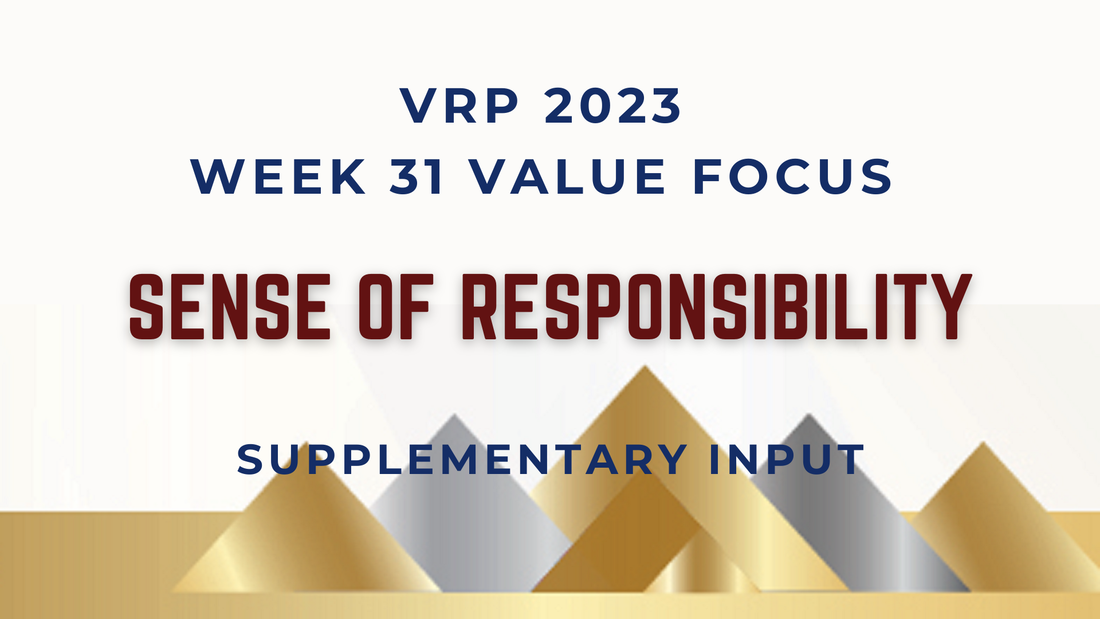
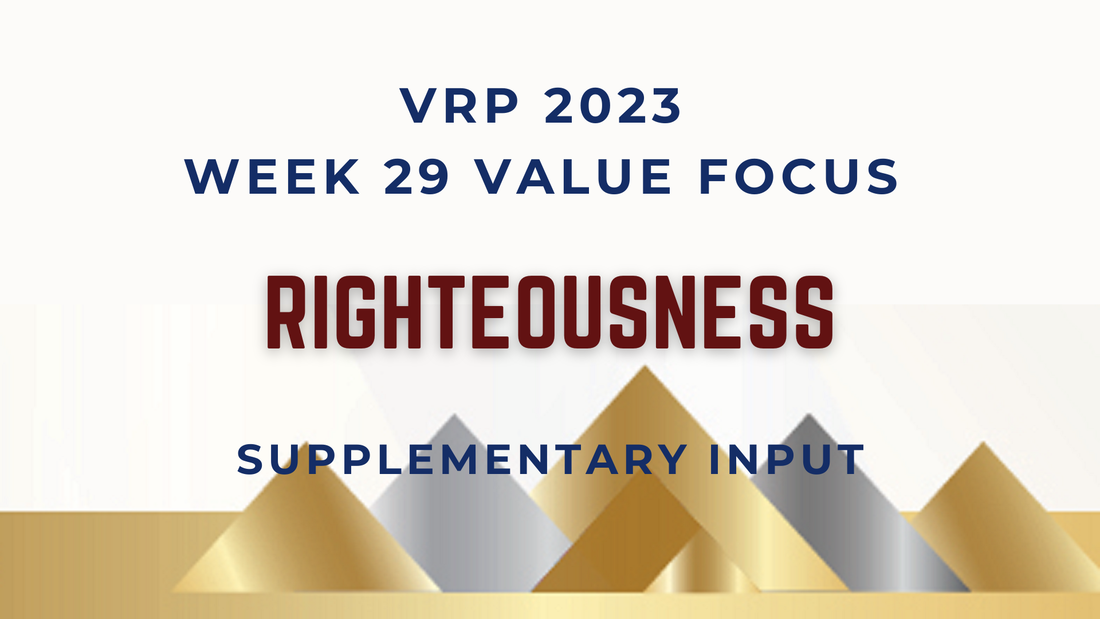
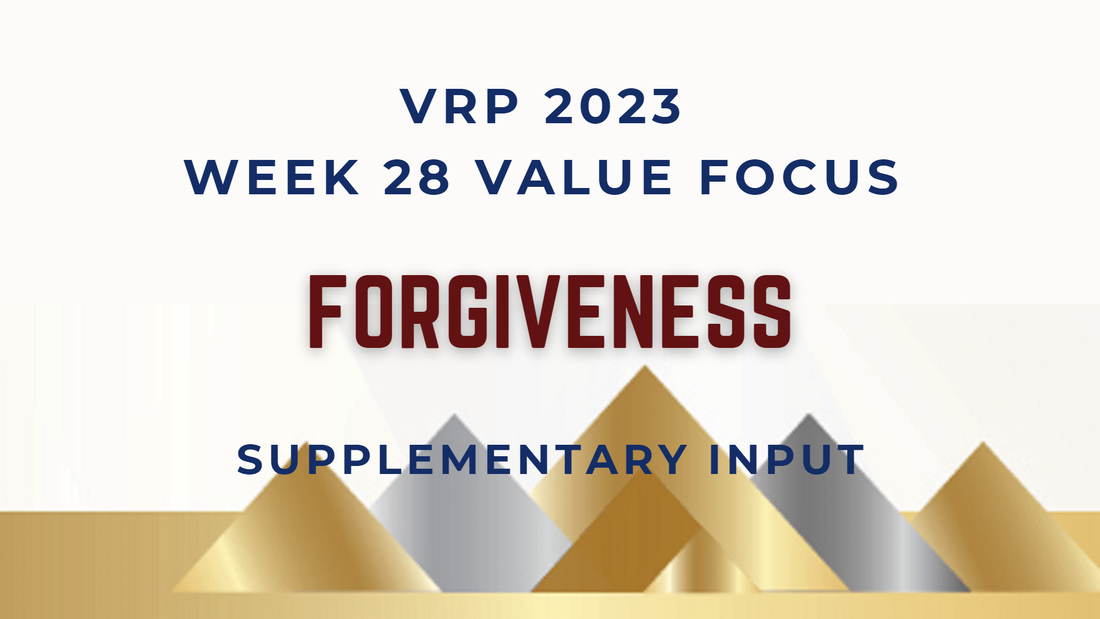
 RSS Feed
RSS Feed
